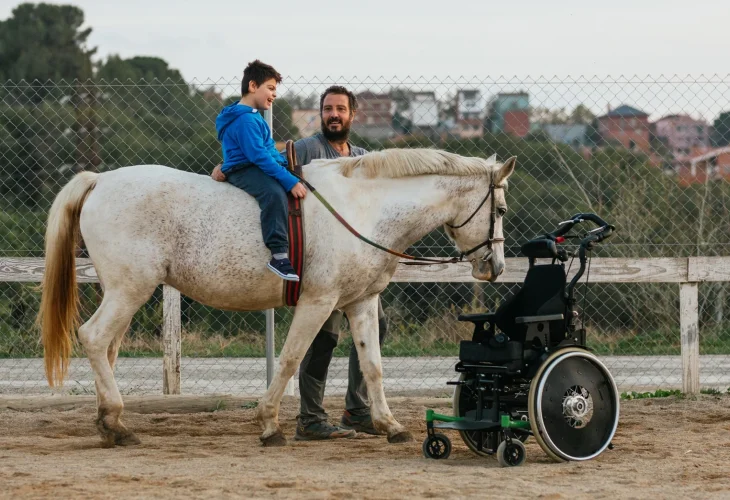Animal Therapy: How Horseback Riding and Petting Rabbits Boost Health
Animal therapy is a natural and healing way to enhance both mental and physical well-being. The unique bond between humans and animals can help address emotional challenges, decrease anxiety and depression, and improve overall quality of life.
 (Photo: Shutterstock)
(Photo: Shutterstock)Animal therapy, also known as animal-assisted therapy, is a therapeutic approach aimed at improving individuals' physical, emotional, and mental well-being through interaction with animals. The method is based on the special bond between humans and animals, and its goal is to enhance quality of life, providing patients with a sense of calm, security, and happiness.
What is Animal Therapy?
Animal therapy involves the use of a wide range of animals, such as dogs, cats, horses, and even dolphins, to assist in treating various health conditions. Animals participate in the therapeutic process as partners, not as therapists, offering warmth, support, and non-judgmental presence. Such interaction can be as simple as petting a dog, playing with a cat, or horseback riding—all of which can contribute to feelings of calmness and mood improvement.
Benefits of Animal Therapy
One of the significant benefits of animal therapy is its positive impact on mental health. Studies have shown that being near animals can lead to reduced levels of stress, anxiety, and depression. Animals can form direct and genuine connections with people, aiding in a sense of connection and reducing loneliness, especially for those experiencing emotional or social issues.
In addition to mental effects, animal therapy can also help improve physical conditions. For instance, children or adults with physical disabilities can experience improvements in muscle strength, coordination, and balance through exercises performed with animals, such as therapeutic horseback riding. Even adults suffering from chronic illnesses can find comfort and relaxation through interactions with animals.
Common Examples of Animal Therapy
* Canine Therapy: Dogs are loyal and dedicated companions, making them especially suitable for therapy. They help reduce anxiety, enhance mood, and encourage physical activity. Dogs also serve as "service animals" assisting people with various disabilities.
* Therapeutic Horseback Riding: Riding horses can aid in improving posture, coordination, and balance, and is used for individuals with physical or mental disabilities. The relationship with the horse also contributes to self-confidence and emotional development.
* Therapy with Rabbits and Other Small Animals: Rabbits, guinea pigs, and other small animals are particularly suitable for treating children or adults who fear larger animals. Interaction with rabbits, such as petting or feeding, can improve mood, foster emotional connection, and aid in developing a sense of responsibility. These small animals offer a calming and non-threatening presence that may ease shy or anxious patients.
Why is Animal Therapy So Effective?
One of the main reasons for the success of animal therapy is the ability of animals to create an unmediated and non-judgmental connection with humans. Animals do not judge or criticize; they accept people as they are. Such connection provides a sense of security and peace, allowing patients to open up and address their emotional challenges more effectively.
Additionally, interaction with animals stimulates a sense of responsibility and encourages motivation to act and improve personal circumstances. Patients feel important and meaningful to the animal, which strengthens their self-worth.
The bond with animals provides patients with a sense of comfort, peace, and support, proving the healing power of furry friends.
This therapy is not suitable for every medical condition, but for many, it can be an effective and supportive tool in the healing process.

